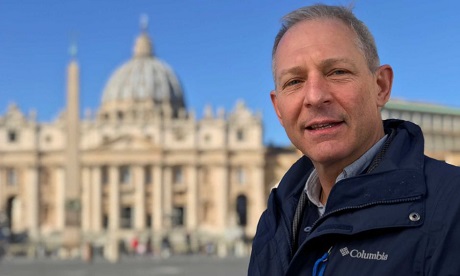While the pope’s announcement of Antiquum ministerium – the new Rite of Institution of the Lay Catechist has made many people happy, others are finding it perplexing and likely to backfire.
“Just who are the laity in a church of priestly people” asks Robert Mickens, writing his weekly Letter from Rome column in La Croix International.
While the idea of the lay catechist seems innovative and will help eradicate clericalism, he says expectations are not quite as they seem.
Francis wants to keep the laity from being clericalised, but the new ministry actually protects the persistent clericalism among the men who are deacons, presbyters and bishops, Mickens claims.
Rather than being a fresh approach, it just reformulates old concepts, “whether or not that was the pope’s real intention,” he says.
One of those concepts is the dualism of clergy and laity, codified in the 16th century at the Council of Trent.
But what is ‘laity’, Mickens asks, turning to Jesuit canon lawyer and theologian Ladislas Orsy to answer the perplexing question.
If you became a layperson at baptism, were you baptized to be a ‘layperson’ forever? he asks.
His point is to explain each of us is baptized to be a Christian.
We then become full members of the People of God, the “household of God” and the “priestly people”.
The pope is a Christian to no greater degree than the newly baptized infant, Mickens asserts.
“Just as there are no lay ministries as opposed to sacred or clerical ministries. There are just Church ministries.”
“They are spiritual gifts freely given by the Holy Spirit to whom the Spirit chooses. The body of believers, through discernment, has the task of identifying those who have been given specific charisms.”
Mickens says this theology originated with the writings of St. Paul and St. Luke in the Acts of the Apostles.
Professor Andrea Grillo, of the Pontifical Atheneum of Sant’Anselmo in Rome agrees.
“There are ‘charisms’ and ‘ministries’. And among the ministries there are those that are ‘ordained’ and those that are ‘instituted’,” he says.
However, members of the so-called laity can “cooperate” in an apostolate or ministry that is rightly that of clerics. They do not share this apostolate as equals. (cf. CIC 129§2).
Nevertheless, the pope’s new document (Antiquum ministerium) insists the “lay apostolate is unquestionably ‘secular’ and should avoid any form of clericalization.
Archbishop Rino Fisichella says it “should not be forgotten that in various regions where the presence of priests is inexistent or rare, the figure of the Catechist is that of one who presides over the community and keeps it rooted in the faith..”
Leading the community in liturgy is part of this, he says.
Source
Additional readingNews category: World.




